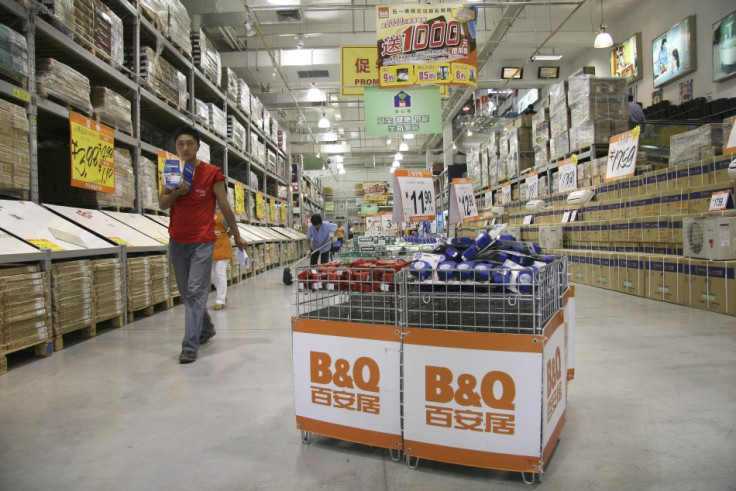Kingfisher Shares Fall on Profit Drop Amid Weak Consumer Confidence

Shares in European DIY retailer Kingfisher fell more than 2% after the company reported a 1.6% decline in profit for the first half of 2013 and said consumer confidence remains weak in its key markets.
Europe's biggest home improvement retailer reported pre-tax profit before goodwill and exceptional items of £365m ($573m, €432m) for the first half, down from £371m the year before.
Kingfisher shares, which have gained 48% over the year, were trading at 410.7 pence, down 2.21% on the day before midday.
Sales for the first half rose 4.3% to £5.7bn on a reported basis. On a like-for-like basis, which excludes the effects of store openings and closures, sales fell by 0.8%.
By geography, sales rose 4.5% in France, 0.3% in the UK and Ireland and 13.1% in other international regions.
The owner of DIY chains B&Q and Screwfix, however, said its second-quarter was strong due to the hot summer.
"After a difficult first quarter, in which sales and profits were affected by record bad weather, we were able to capitalise on the better weather in the second quarter particularly in the UK, to grow quarterly profits and so deliver a broadly flat result across the half," CEO Ian Cheshire said.
Group retail profit, defined as operating profit before central costs, exceptional items and goodwill amortisation, for the second quarter rose by 15.3% to £280m from. In the first quarter, it fell by 29%.
Kingfisher, which also owns Castorama and Brico Depot in France, had net cash of £259m at the end of the first half, and is paying an interim dividend of 3.12 pence, up 1%.
'Consumer Confidence Remains Weak'
"Underlying consumer confidence remains weak in our major markets, so we continue to focus hard on our self-help initiatives to drive growth, margin and cost efficiencies," Cheshire added.
Kingfisher sales across the globe suffered from the global economic crisis, as consumers postponed purchases of big ticket items due to squeezed household budget.
In order to offset weak demand, the company sourced goods from cheaper manufacturing locations such as China.
The company that has about 1,070 stores in nine countries in Europe and Asia noted that it remains confident in its future prospects.
"Looking ahead, we remain ready to capitalise on any improvement in conditions or opportunities as they arise, including the potential pick up in the UK housing market," Cheshire said.
© Copyright IBTimes 2025. All rights reserved.






















